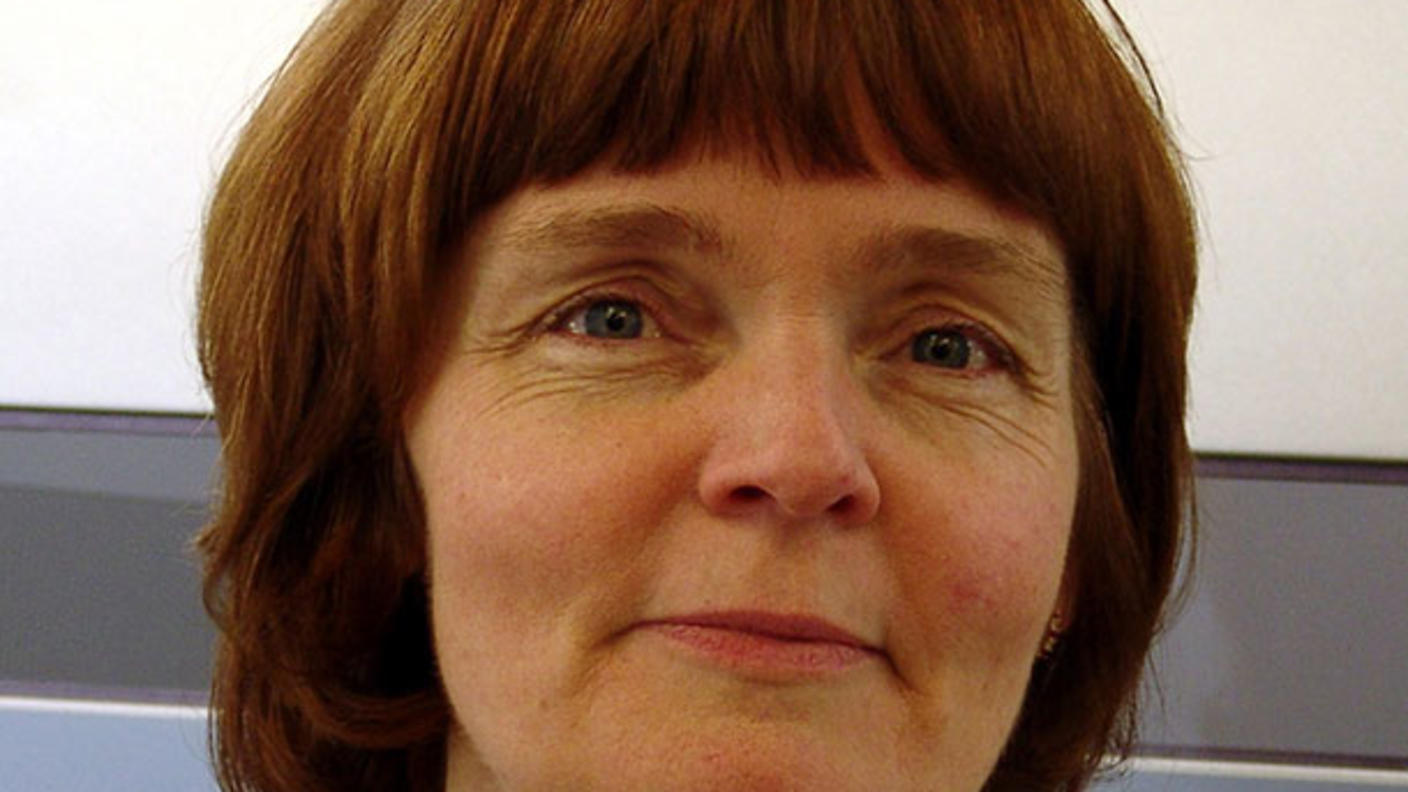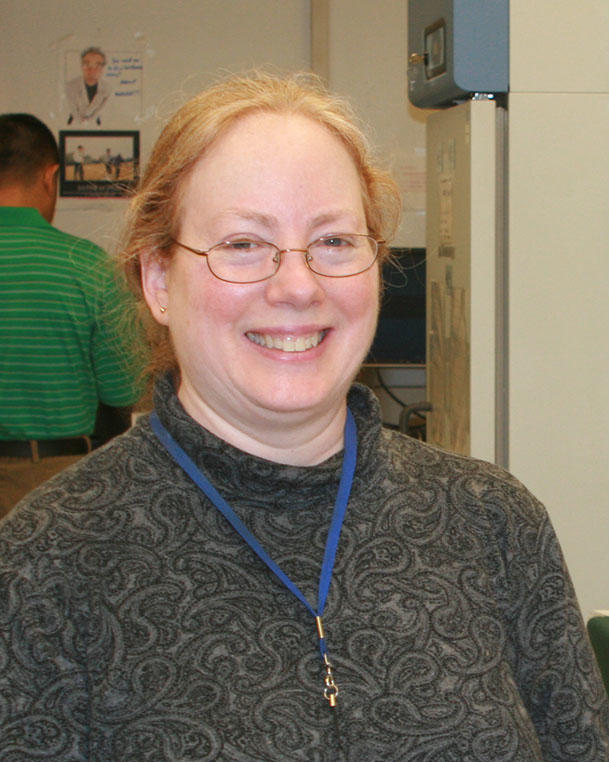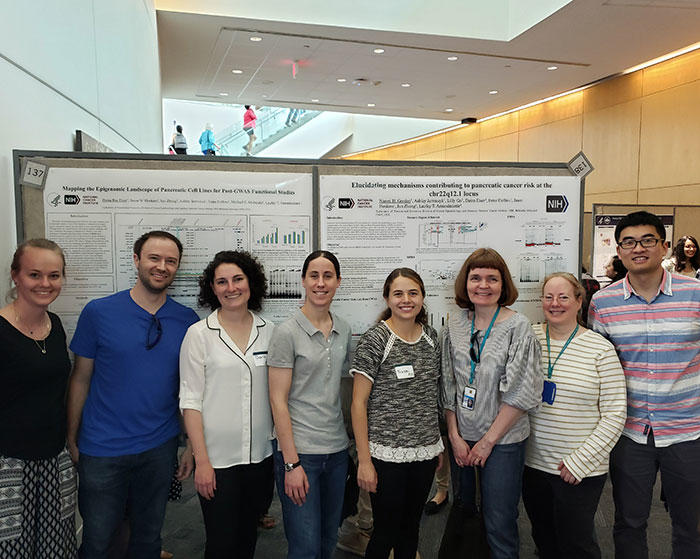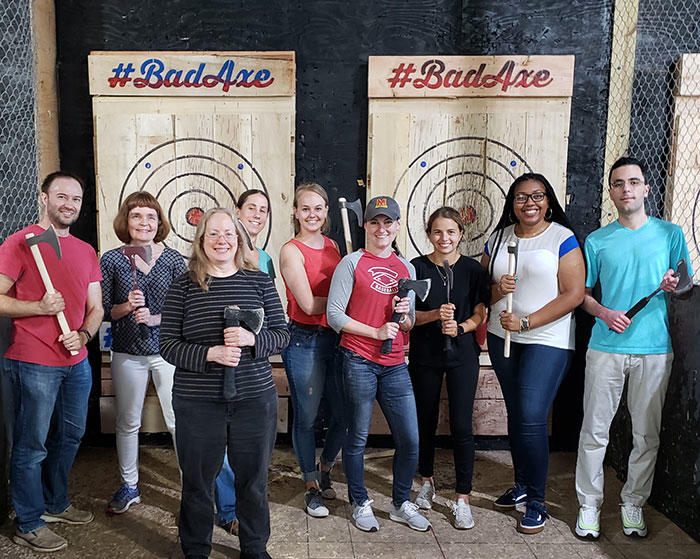Research Focus
Dr. Amundadottir's Lab investigates genetic risk for pancreatic cancer.
Gene Mapping in Pancreatic Cancer
The laboratory performs gene mapping to uncover the genetic underpinnings of pancreatic cancer risk utilizing data from large-scale consortia with well-annotated samples, including PanScan, a GWAS of pancreatic cancer conducted within the framework of the NCI Cohort Consortium, Pancreatic Cancer Case Control Consortium (PanC4), the PANcreatic Disease ReseArch (PANDoRA) consortium, the European Study on Pancreatic Cancer Genetics and Epidemiology (PanGen-EU), and Chinese and Japanese pancreatic cancer GWAS efforts.
Functional Characterization of Pancreatic Cancer Risk Loci
The laboratory conducts fine-mapping of risk loci identified in PanScan and collaborative gene mapping efforts, as well as wet-lab studies to uncover functional variants at each locus and understand the mechanism by which they influence risk of pancreatic cancer. This work involves genomic and epigenomic approaches, with a focus on genome-wide expression quantitative trait locus (eQTL) analyses to investigate the genetics of gene expression in normal and tumor derived pancreatic tissue samples and correlate to pancreatic cancer risk alleles as well as Transcriptome Wide Association Studies (TWAS) for gene mapping.
These transcriptome and epigenome datasets are generated in our laboratory and supplemented with publicly available datasets. Furthermore, the laboratory focuses on targeted functional analyses in specific pancreatic cancer susceptibility loci. This work includes analysis of gene expression in the vicinity of risk variants, investigation of transcriptional regulation and gene/protein function with the aim of connecting pancreatic cancer risk variants to target genes and molecular phenotypes to explain the underlying biology of the risk at each locus.
Amundadottir Lab Members
The team is made up of fellows and staff from diverse backgrounds and experience encompassing experimental and computational specialties. Lab members closely collaborate with each other as well as members of LTG and outside collaborators. Fellows of all stages have opportunities to be trained and mentored within the lab and through the collegial environment at LTG while striving to achieve their research goals.
Scientific Staff
Current Fellows
Katelyn E. Connelly, Ph.D., Postdoctoral Fellow
Alanah M. McKeever, B.A., Postbaccalaureate Fellow
Life in the Lab
Labs are all about collaboration. Working together, team members keep science moving forward, utilizing new tools and approaches, and helping each other learn. They also find occasional moments for fun.
News
Publications
See all Scientific Publications
Selected Recent Publications
Zhong J, Shi J, Amundadottir LT. Artificial Intelligence and improved early detection for pancreatic cancer. The Innovation 2023.
Hoskins JW, Christensen T, Amundadottir LT. Master regulator activity QTL analysis: implicating phenotypic master regulators potentially mediating GWAS signals using eQTL data. STAR-Protocols. 2022.
Hoskins JW, Chung C, O’Brien A, [...] Amundadottir LT. Inferred expression regulator activities suggest genes mediating cardiometabolic genetic signals. PLoS Comput. Biol. 2021.
Jermusyk J, Zhong J, Connelly KE, Gordon N, […] Amundadottir LT. A 584 bp deletion in CTRB2 inhibits chymotrypsin B2 activity and secretion and confers risk of pancreatic cancer. Am J Hum Genet 2021.
Zhong J, Jermusyk A, Wu L, […] Amundadottir LT. A transcriptome-wide association study identifies novel candidate susceptibility genes for pancreatic cancer. J Natl Cancer Inst 2020.




